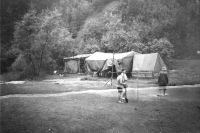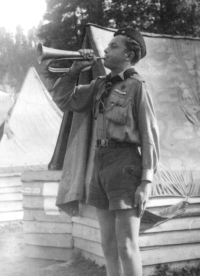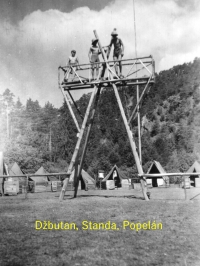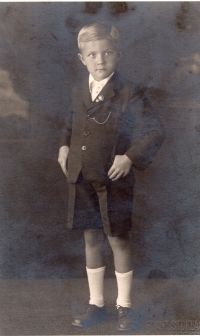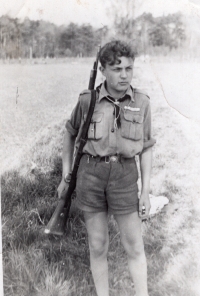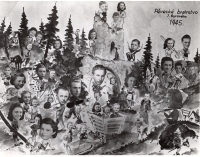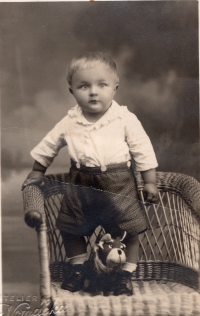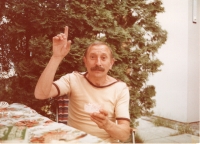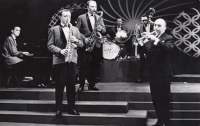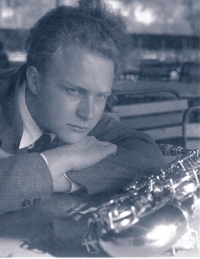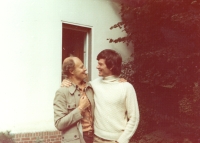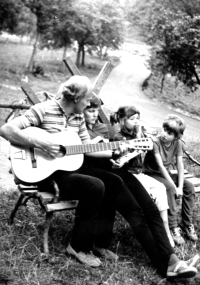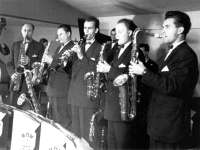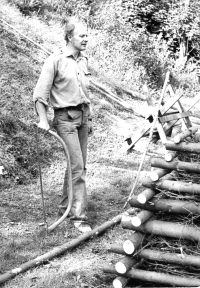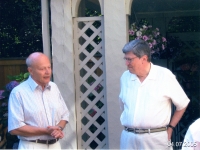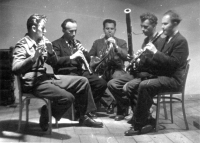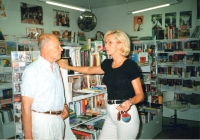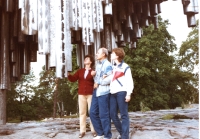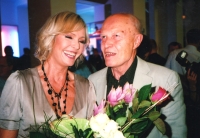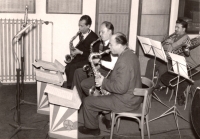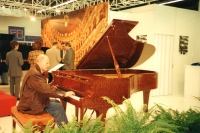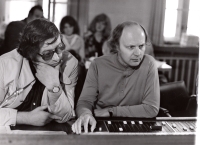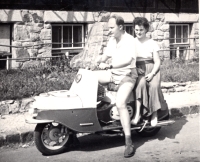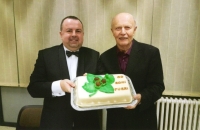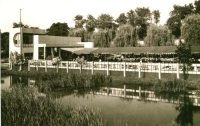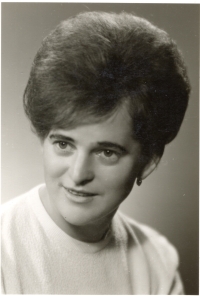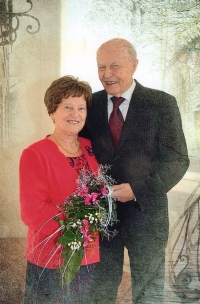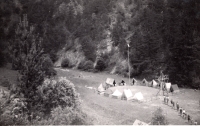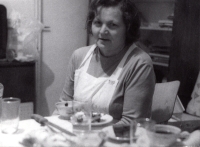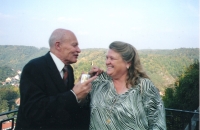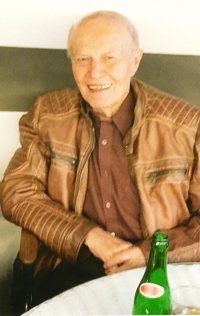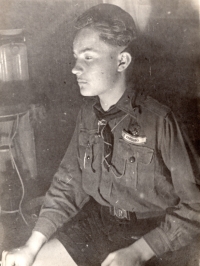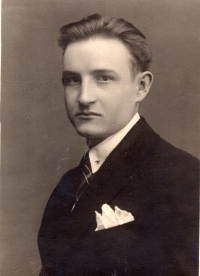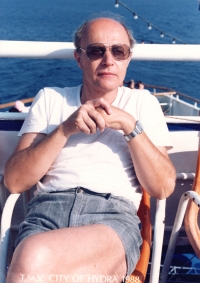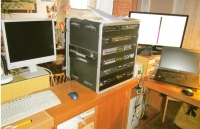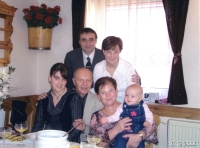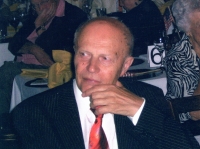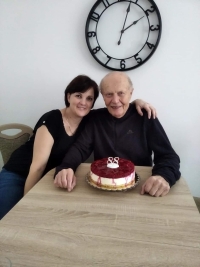Scouting meant more than belief in God for Vladimír Popelka after the war
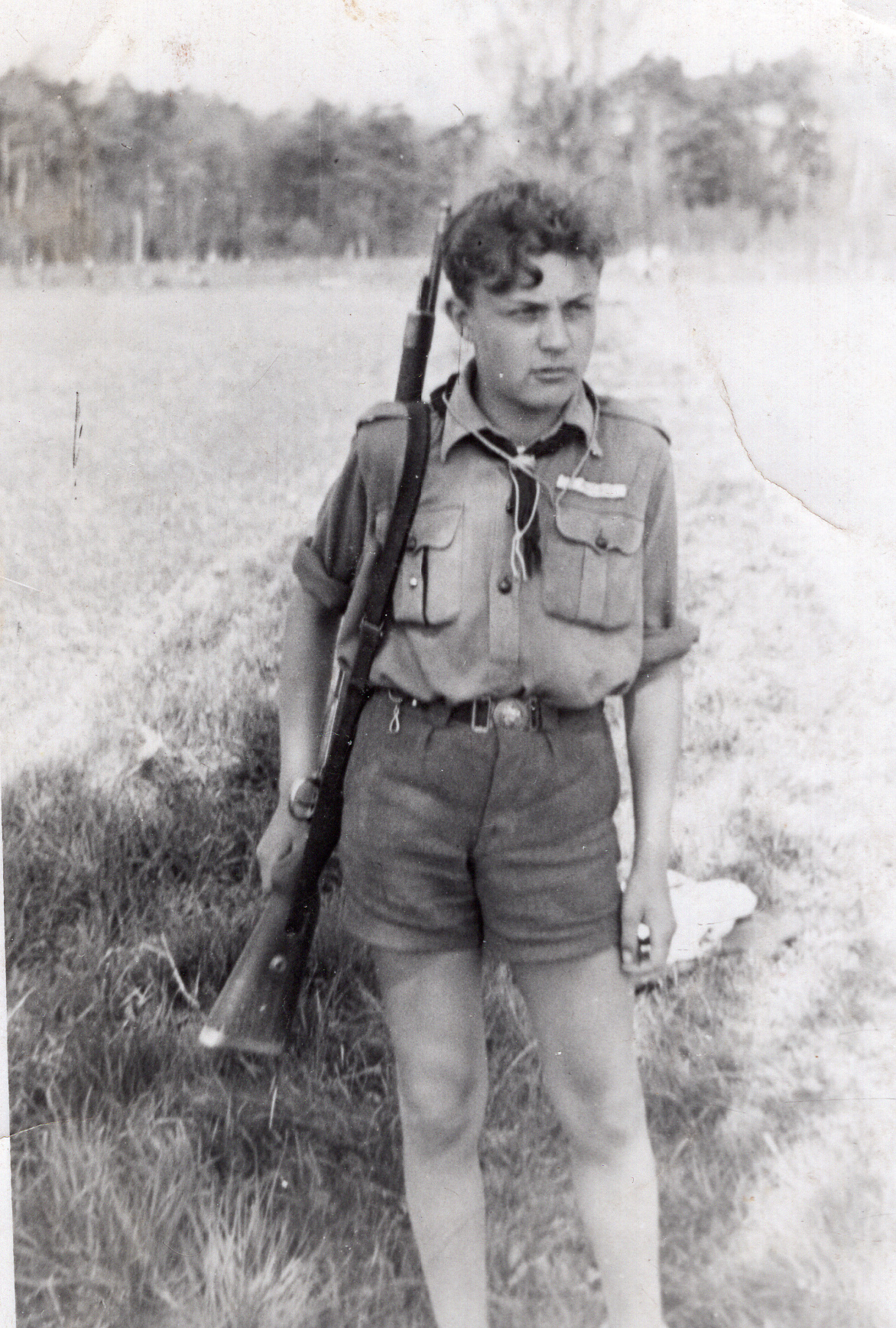
Download image
The composer and conductor Vladimír Popelka was born on 22 January 1932 in Pardubice. From early childhood he began to show a talent for music. His musical beginnings were in the East Bohemian ensembles and orchestras of Jan Syrový. After graduating from secondary school he chose to study at the Faculty of Chemical Technology in Pardubice. He devoted himself intensively to music at the same time. He first tried his music arranging skills in Viktor Matěna’s brass band in Pardubičky. In the post-war years, besides music, scouting also filled his life considerably. In 1949 he became a part of the Melody Club of Oskar Kmoníček in Pardubice. From 1952 onwards, he played the clarinet in the Regional Symphony Orchestra and other East Bohemian ensembles. From 1956 he studied composition privately with Zdeněk Hůla, professor at the Prague Conservatory. In the same year, Vladimír Popelka married Zdenka Hasmanová at the Old Town Hall in Prague. Thirteen years later the couple had a daughter Radka. In 1960, the witness took over the orchestra management from Oskar Kmoníček and began active recording at the Czechoslovak Radio in Hradec Králové. After meeting the bandmaster Mirko Foret, he moved to Brno in 1962. There he became the music editor of Czechoslovak Radio. His colleague in Foret’s band was the then starting musician Felix Slováček. In 1968, Vladimír Popelka was brought by his friend Bohuslav Ondráček to the Golden Kids band, and in Prague he also worked as a music director for Supraphon publishing company, was a long-time conductor of TOČR (Czechoslovak Radio Dance Orchestra), and after the death of Josef Vobruba in 1982 he became the chief conductor of this dance radio orchestra. In the following years he actively collaborated as a music arranger and composer with leading performers in the field of jazz, swing and pop music. In 2019 he published his own biography, My Life with Music. At the time of the recording in 2022, he was living in Pardubice and partly in Prague.
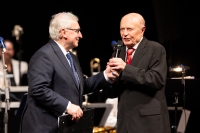
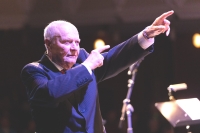
![Vladimír Popelka conducting a medley of his successful songs from the 1970s and 80s Few Nuts from Popelka [Popelka means Cinderella in Czech, trans.], Pardubice, 2022](https://www.memoryofnations.eu/sites/default/files/styles/witness_gallery/public/2022-05/_R5_2429.jpg?itok=zGdKc-Ag)
